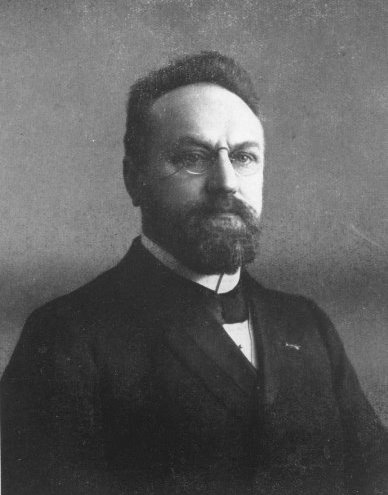“All good, enduring reformation begins with ourselves and takes its starting point in one’s own heart and life,” writes Herman Bavinck in The Christian Family. “If family life is indeed being threatened from all sides today, then there is nothing better for each person to be doing than immediately to begin reforming within one’s own circle.”
Such a process of reformation is complex and varied, and is somewhat unique for each of us. But for the moment, I’d like to focus on one particular dynamic: the unique role that children play in reforming their parents.
On this, Bavinck offers the following reflection:
For children are the glory of marriage, the treasure of parents, the wealth of family life. They develop within their parents an entire cluster of virtues, such as paternal love and maternal affection, devotion and self-denial, care for the future, involvement in society, the art of nurturing. With their parents, children place restraints upon ambition, reconcile the contrasts, soften the differences, bring their souls ever closer together, provide them with a common interest that lies outside of them, and opens their eyes and hearts to their surroundings and for their posterity. As with living mirrors they show their parents their own virtues and faults, force them to reform themselves, mitigating their criticisms, and teaching them how hard it is to govern a person.
The family exerts a reforming power upon the parents. Who would recognize in the sensible, dutiful father the carefree youth of yesterday, and who would ever have imagined that the lighthearted girl would later be changed by her child into a mother who renders the greatest sacrifices with joyful acquiescence? The family transforms ambition into service, miserliness into munificence, the weak into strong, cowards into heroes, coarse fathers into mild lambs, tenderhearted mothers into ferocious lionesses. Imagine there were no marriage and family, and humanity would, to use Calvin’s crass expression, turn into a pigsty.
Bavinck precedes this by noting that, “Holy Scripture evaluates having children entirely differently than the modern generation,” and here, let us pause and remember that he was writing in 1908.
When considering such prose in light of today’s Modern Man, one is prone to shudder, for as Jonathan Last, Mary Eberstadt, and many others have pointed out, birthrates in the Western world are in free fall, with more and more adults opting for fewer and fewer children, if any at all.

As for the economic implications of all this, the bulk of the apocalyptic daydreaming tends to focus on how or whether the state shall be fed. And indeed, when the Leviathan readies his jaws and preps his belly based on certain expectations about certain future citizens, things are bound to go awry when the said serfs fail to accumulate. Such a trend is disconcerting at a much higher level as well, of course. For if humans are creators and creators are contributors to the whole of human life, under-served government promises are probably the least of our concerns.
But as profound and pressing as our anxieties about output may be, we would do well to stretch our imaginations beyond the bureaucrat’s balance sheet and toward the deeper, more far-reaching impacts that the childless society has on the childless. As Bavinck aptly demonstrates, the bearing and raising of children brings with it a peculiar and, in many ways, irresistible thrust of moral, social, and spiritual transformation. What should we expect in a society where such a unique and powerful reorientation of the individual is missed by the many instead of the few?
If the economic order is propelled by human action, it would seem that the impact of child-rearing on such action would appear to be of significance. For even in a free and law-abiding market economy, wherein people are unleashed and empowered to dream, risk, exchange, and collaborate, threats of ambition, pride, selfishness, exploitation, and gluttony will persist.
Children play a significant role in curbing our appetites for such sin. The routine act of something as mundane as responding to an infant’s middle-of-the-night cries is bound to have an impact on how we respond to the cries of our co-workers, customers, and beyond. The routine service of submitting the fruits of one’s labor to the needs of the family is bound to have an impact on how we meet the needs of others and overcome the temptations of avarice. To repeat, as Bavinck rightly concludes, “The family transforms ambition into service, miserliness into munificence, the weak into strong, cowards into heroes, coarse fathers into mild lambs, tenderhearted mothers into ferocious lionesses.”
Or, as he puts it elsewhere, “The family is a school for the children, but in the first place it is a school for the parents.”
[product sku=”1303″]

